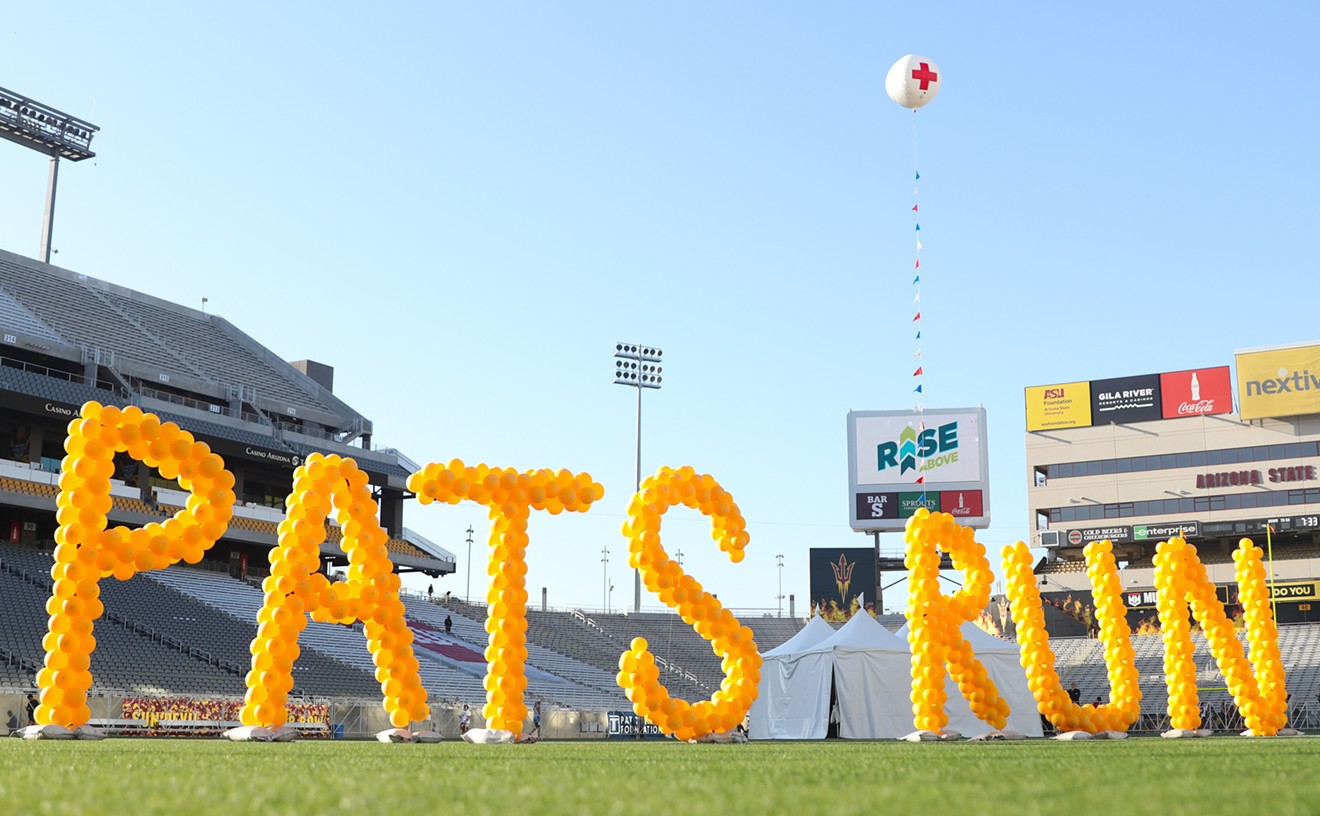Oh, you guys, it's terrible luck in the world of theater to have peacock feathers in your set or costume or props. And as Judy Garland's mother, Valerie Saunders wears a passel of them (in one of several mostly striking and accurate costumes by the show's author, local writer Richard Sullivan) in Judy: The Musical.
Curtains is, therefore, cursing, rotating, and spitting on the show's behalf. A sizable audience is having a pretty swell time with Genuine Broadway Star Paige O'Hara (best known as the voice of Disney's Belle), local actors are getting paid, and the creative team has been tweaking this new tuner for a few years now.
There's no reason to think such nice, hardworking people can't wind up with a successful show -- as long as they don't run out of energy, money, or goodwill.
O'Hara claims to have been profoundly inspired by Garland even before she, too, became best known for portraying an innocent young woman in a cult classic. And she channels the affectionate, darkly humorous, insecure diva just deliciously, including in song, where she trembles, rasps, and belts with all the charm and most of the rich, brassy pathos of the original.
Sullivan has written several original songs for his play. I'm afraid those are the production's weakest link, with frequent awkward phrasing and word choices in the lyrics, irregular rhythms, and occasional glaring similarities to older songs.
These tunes are far from catchy or memorable -- perhaps partly because they fall short of being a showcase for anyone in the cast -- and they fail to hold a candle to the loungey/torchy/showstopper standards they're standing in for (several of which gems are present in the score as real treats for the audience). The top-notch onstage band doesn't seem to have any trouble with Michael Markowski's arrangements of Sullivan's pieces, but even O'Hara appears to find them challenging to sing.
The assorted weirdnesses in each song smacked me right out of my suspension of disbelief, and the effect was cumulative, leaving me with a raw, wincing anticipation during "I Had a Ball," the script's finale, which is actually the best of the songs.
But did you know that Judy was married five times? (One of them was even before Liza's dad, director Vincente Minnelli.) That child stars of the period were routinely fed uppers and downers by the studios? That Garland spent her life feeling short, fat, and ugly (especially alongside her classmates on the MGM lot, such as Elizabeth Taylor and Lana Turner)?
If not, this is the sort of stuff you'll be fascinated to witness during Judy, whose book is comparatively tight and alternates nicely between scenework and anecdotal monologues by O'Hara, as the gradually aging adult star, and clear, strategically positioned timeline jumps that feature Emilie Doering as an eerily perfect teenage Garland.
The plot pivots on the A Star Is Born years: the maddeningly expensive, trouble-prone, and time-consuming production process that culminated in ruthless editing of the lengthy film (in a failed attempt to boost showings and revenue) and Garland's loss of the Oscar -- immediately after the birth of her son, Joey Luft -- to Grace Kelly, (My theory is that too many Academy voters that year had been professionally and/or personally burned by Garland's popularity and/or her erratic behavior.)
Focusing on that seminal movie was a genius authorial choice, I think. Not only is it some of Garland's finest work, she's portrayed as pinning all her film comeback hopes on it and never being quite the same afterward, which, as far as I can tell, is a reasonably accurate interpretation. The financial insolvency that followed Star led to grueling concert schedules and, ultimately, Judy at Carnegie Hall and CBS' stunning The Judy Garland Show.
Judy: The Musical's promotional materials (including the most annoying website in the English-speaking world) describe the show as not particularly tragic; interviews and press releases suggest that it's more about Garland's personal life (which, considering what work meant to her, must include parts of her journey to and through success and stardom) than it is about her renowned obstacles, suffering, and victimhood.
While my companion and I agreed that that description was rather misleading -- much of the really rough stuff does happen to behind-the-scenes Garland, whose repeated crashes are far from upbeat here -- that's not a criticism; the heavy shit is intriguing and well-handled, and there's a lot that is beautiful and inspiring in this production. Moreover, I doubt Judy could have been quite so accessible and beloved if she hadn't been so thoroughly vulnerable and sad in a way she could never entirely avoid sharing.
Judy: The Musical continues through Sunday, April 24, at Tempe Center for the Arts, 700 West Rio Salado Parkway. For tickets, $40 to $55, click here or call 480-350-2822.











